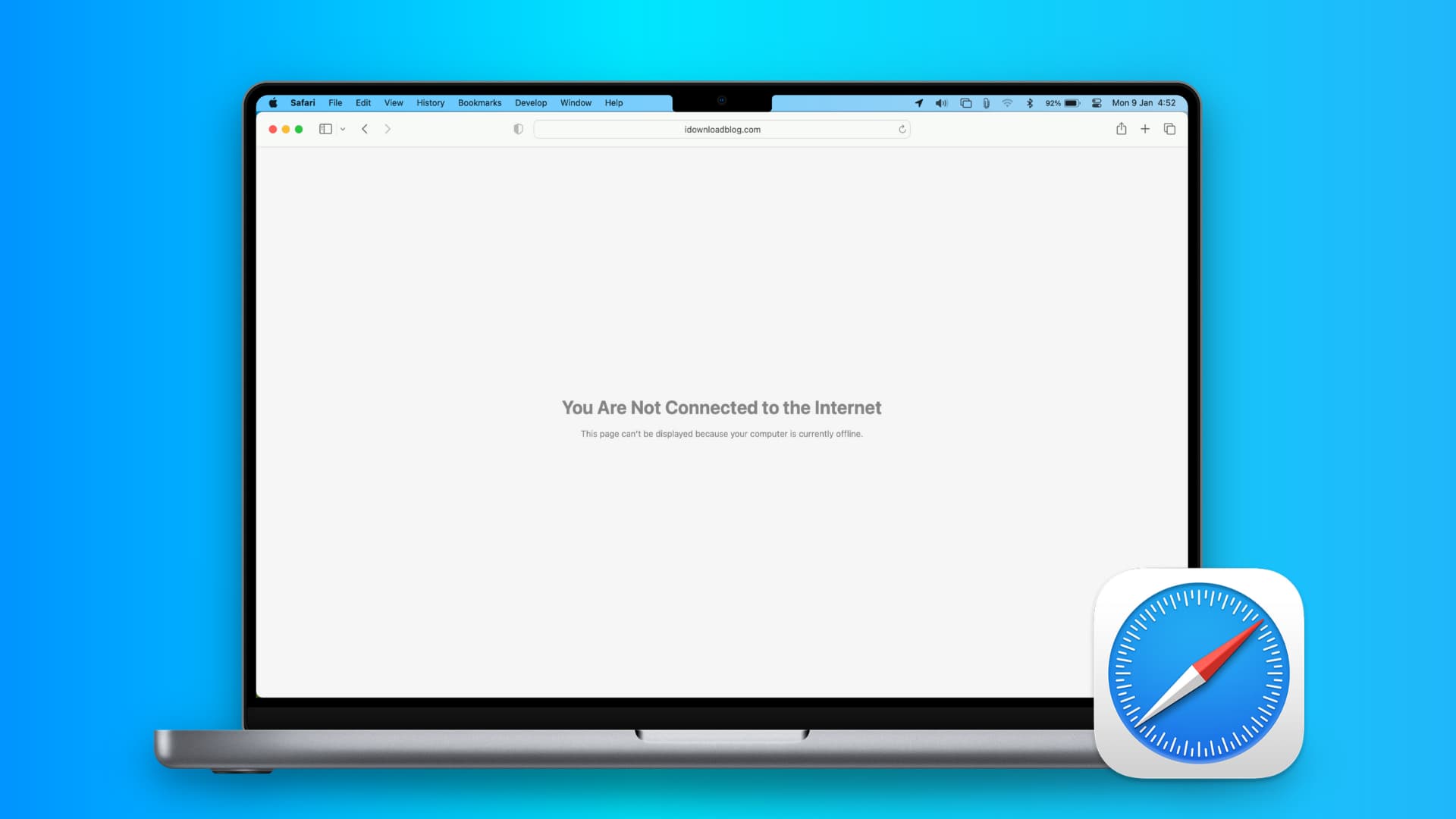Introduction
In today's digital age, web browsers have become an integral part of our daily lives, serving as gateways to the vast expanse of the internet. Among the plethora of features and functionalities offered by browsers, the handling of cookies plays a crucial role in shaping our online experiences. Cookies, small pieces of data stored on a user's device, are utilized by websites to track user activity, personalize content, and facilitate seamless navigation. While cookies can enhance user convenience, they also raise concerns regarding privacy and data security.
Understanding the nature of cookies and their implications is essential for individuals seeking to maintain control over their online privacy. As the default browser for Apple devices, Safari boasts a robust set of features, including options to manage and block cookies. By gaining insights into the workings of cookies and the associated risks, users can make informed decisions about their online privacy and security. This article aims to shed light on the intricacies of cookies, the potential risks they pose, and the methods to block them effectively within the Safari browser.
As we delve into the world of cookies and their management in Safari, it becomes evident that empowering users with the knowledge and tools to control their online footprint is paramount. By taking proactive steps to understand and regulate the use of cookies, individuals can navigate the digital landscape with confidence, knowing that they have the means to safeguard their privacy. Let's embark on this journey to unravel the mysteries of cookies and equip ourselves with the know-how to wield control over our online interactions.
Understanding Cookies
Cookies, in the context of web browsing, are small pieces of data that websites store on a user's device. These data files serve various purposes, such as remembering login credentials, tracking user preferences, and enabling personalized content delivery. When a user visits a website, the site's server sends a cookie to the browser, which then stores it on the user's device. This process allows the website to recognize the user upon subsequent visits, thereby customizing the browsing experience based on the stored information.
There are different types of cookies, each serving distinct functions. Session cookies, for instance, are temporary and are deleted once the user closes the browser. These cookies enable websites to maintain continuity during a user's visit, such as remembering items in a shopping cart. Persistent cookies, on the other hand, remain on the user's device for a specified duration, retaining information such as login credentials and site preferences across multiple sessions.
Cookies play a pivotal role in enhancing user experience on the web. They enable websites to deliver personalized content, streamline navigation, and remember user preferences, thereby contributing to a seamless and tailored browsing experience. For instance, cookies facilitate the auto-fill of previously entered information, saving users time and effort when filling out forms or logging into accounts.
However, the use of cookies also raises concerns regarding privacy and data security. As cookies store user-specific information, there is a potential risk of unauthorized access to sensitive data. Moreover, third-party cookies, which are set by domains other than the one the user is visiting, can be utilized for tracking user behavior across multiple websites, raising privacy implications.
Understanding the nature and functionality of cookies is crucial for individuals navigating the digital realm. By grasping the role of cookies in web browsing and recognizing the potential risks associated with their usage, users can make informed decisions about managing and controlling their online privacy. With this foundational knowledge, individuals can explore the methods to regulate and block cookies effectively, empowering themselves to maintain a balance between personalized browsing experiences and data security.
Risks of Cookies
While cookies play a pivotal role in enhancing user experience on the web, they also pose inherent risks that warrant careful consideration. One of the primary concerns associated with cookies is the potential compromise of user privacy. As cookies store user-specific information, there is a looming risk of unauthorized access to sensitive data. This includes personal details, browsing habits, and even login credentials, which, if intercepted, can lead to privacy breaches and identity theft.
Furthermore, the proliferation of third-party cookies introduces additional privacy implications. These cookies, set by domains other than the one the user is actively visiting, are commonly used for tracking user behavior across multiple websites. This practice, often employed by advertising networks and data analytics companies, enables the creation of comprehensive user profiles based on browsing activities. Consequently, users may experience targeted advertising and content personalization, but at the cost of compromising their privacy and potentially exposing sensitive information to unknown entities.
In addition to privacy concerns, cookies also raise issues related to data security. Given the potential for unauthorized access to stored information, there is a heightened risk of data breaches and exploitation. Malicious actors may attempt to exploit vulnerabilities in cookies to gain access to user accounts, manipulate preferences, or execute unauthorized transactions. This underscores the importance of implementing robust security measures to mitigate the risks associated with cookie usage.
Moreover, the widespread use of cookies across various websites and online platforms amplifies the scope of potential risks. As users traverse the digital landscape, their online activities and preferences are tracked and stored by numerous entities, creating a complex web of interconnected data. This interconnectedness not only heightens the risk of privacy breaches but also raises concerns about the aggregation and potential misuse of user data by disparate entities.
In light of these risks, it becomes imperative for users to exercise vigilance and adopt proactive measures to safeguard their online privacy and data security. Understanding the potential vulnerabilities associated with cookies empowers individuals to make informed decisions about their browsing habits and take necessary steps to mitigate risks. By gaining awareness of the risks posed by cookies, users can explore strategies to manage and control cookie usage effectively, thereby fortifying their digital defenses and preserving their privacy in an increasingly interconnected online ecosystem.
How to Block Cookies in Safari
Managing and controlling cookie behavior in Safari is essential for users seeking to fortify their online privacy and enhance data security. Safari offers robust features that empower users to regulate cookie usage effectively, thereby mitigating potential privacy risks and safeguarding sensitive information. By leveraging the built-in tools and settings within Safari, users can exert control over the acceptance and storage of cookies, aligning their browsing experience with their privacy preferences.
Configuring Cookie Settings
To initiate the process of blocking cookies in Safari, users can navigate to the browser's settings and access the "Privacy & Security" section. Within this section, Safari provides options to manage website tracking, including the handling of cookies. By selecting the "Block all cookies" option, users can proactively prevent websites from storing cookies on their devices, thereby curtailing the accumulation of user-specific data and mitigating privacy risks.
Managing Website-Specific Preferences
Safari also allows users to exercise granular control over cookie settings for individual websites. Upon visiting a specific website, users can access the browser's settings to view and modify the site's cookie preferences. This feature enables users to block cookies from specific websites while allowing them from others, tailoring their privacy settings based on their trust and preferences for each site.
Utilizing Intelligent Tracking Prevention
Safari incorporates Intelligent Tracking Prevention (ITP), a feature designed to enhance user privacy by limiting cross-site tracking and the storage of third-party cookies. ITP leverages machine learning algorithms to identify and block tracking capabilities utilized by advertisers and data analytics entities, thereby reducing the exposure of user data to external parties. By leveraging ITP, users can bolster their privacy defenses and mitigate the risks associated with pervasive tracking mechanisms.
Implementing Private Browsing Mode
Safari's Private Browsing mode offers an additional layer of privacy protection by preventing the retention of browsing history, search data, and cookies. When users engage Private Browsing, Safari refrains from storing cookies and other browsing-related information, ensuring that their online activities leave minimal traces on the device. This mode is particularly useful for users seeking temporary privacy enhancements during specific browsing sessions.
By leveraging these features and settings within Safari, users can effectively block cookies and manage their online privacy preferences. Empowered with the ability to regulate cookie behavior, individuals can navigate the digital landscape with heightened confidence, knowing that they have the means to fortify their privacy defenses and mitigate the risks associated with pervasive tracking and data storage practices.
Conclusion
In conclusion, the management of cookies within the Safari browser is pivotal for users aiming to strike a balance between personalized browsing experiences and robust privacy safeguards. By gaining a comprehensive understanding of cookies and their implications, individuals can make informed decisions about regulating cookie usage to align with their privacy preferences. The risks associated with cookies, including privacy breaches and data security vulnerabilities, underscore the importance of proactive measures to mitigate potential threats.
Safari's array of features and settings empowers users to exert control over cookie behavior, offering a multi-faceted approach to managing online privacy. From the ability to block all cookies to granular control over website-specific preferences, Safari equips users with the tools to tailor their browsing experiences while safeguarding their sensitive information. The integration of Intelligent Tracking Prevention (ITP) further enhances privacy defenses by curbing cross-site tracking and mitigating the storage of third-party cookies, thereby reducing the exposure of user data to external entities.
The implementation of Private Browsing mode in Safari serves as an additional layer of privacy protection, ensuring that browsing activities leave minimal traces on the device. This feature is particularly valuable for users seeking temporary privacy enhancements during specific browsing sessions, further exemplifying Safari's commitment to empowering users with privacy-centric functionalities.
By leveraging these capabilities and settings, users can navigate the digital landscape with confidence, knowing that they have the means to fortify their privacy defenses and mitigate the risks associated with pervasive tracking and data storage practices. The proactive management of cookies in Safari not only enhances individual privacy but also contributes to a more secure and trustworthy online ecosystem.
As the digital landscape continues to evolve, the significance of user empowerment and privacy preservation cannot be overstated. Safari's emphasis on privacy-centric features and settings aligns with the growing demand for user-centric privacy controls, reflecting a commitment to prioritizing user privacy in an interconnected online environment.
In essence, the ability to block cookies in Safari represents a proactive step towards reclaiming control over online privacy. By leveraging the tools and functionalities offered by Safari, users can navigate the digital realm with heightened confidence, knowing that they have the means to safeguard their personal information and preserve their privacy in an increasingly interconnected digital landscape.

























